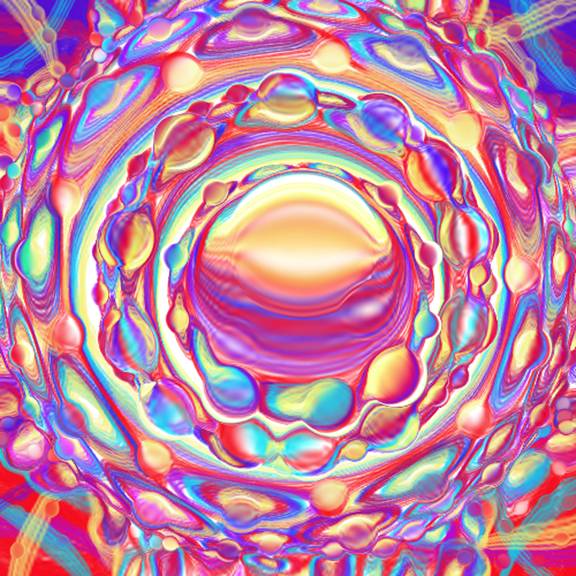
What is the Self, the Atman?
Comments on the Brihadaranyaka Upanishad IV.iii.7
The question:
Which is Self, the Atman? In other words, is Self the
intellect, mind, the ego, the five senses
(indriyas),
or the body?
The answer:
When the One, the imperishable immutable Fullness, takes on
the appearance-of-separation, it is called the highest Purusha, the guiding
Light (jyotih)
that resides in the Heart Center. This appearance of a ‘portion’ of the one is
called the Self, Atman, the Soul (jiva)
and moves through the adventure of Life by becoming identified with the temporal
illusory dreamlike worlds it creates.
Life is the “dream” of the Self.
However the Self, the God-within, transcends this world. As Krishna says in the
Bhagavad Gita (VII.12): I am not in them, they are in Me! The Self remains pure,
untouched. After countless lifetimes of birth and death, the Self moves the Soul
to transcend the mortal forms it has assumed to experience the apparent temporal
illusory hologram we know as Life.
***
The Atman Self dwells within you, but most of us remain
unaware, unconscious of our true essence. This Purusha-Self-Atman is the same in
all beings. There is only one soul. We all have the same soul (Bhagavad Gita
IX.29 & XIII.31); only the forms we take vary. When you realize this, you are
liberated (mukti) from the illusion
of separation.
The Self cannot be perceived by the five senses; therefore, it cannot be reached
by the senses. The Real we are seeking does not lie outside of us. Whatever
satisfaction sense gratifications give quickly evaporate.
It does not matter how rich or powerful we become. Sooner or later whatever we
have acquired, we will lose. Most of us spend our entire lives in desperate
pursuit of external sense objects. Most of us are lost, happy for a moment and
then inevitably we sink into states of boredom and depression. Nothing external
can satisfy! Only the God-within us, the Self, can give us the fulfillment we
seek. Only that which resides within us all along, can take us Home.
The search for happiness in the external world will drain
your life force and leave you empty.
It
is simply not possible to find lasting happiness in these external
objects-of-the-senses. Eventually death itself will rob us of all we have
acquired. As our bodies fail with age, we are denied even basic pleasures. We
all know this - and yet it seems we are helpless to relinquish our compulsions.
In this verse the external objects-of-the-senses are called
the ‘death forms’ (mrityo
rUpAni). In his commentary on the Brihadaranyaka
Upanishad, Swami Krishnananda writes this: “… the things you see in waking life
are forms of death.”
This cycle of death and birth will go on until we are ready
to awaken from this Dream (svapno)
world we ourselves have created. Until that time we move from one body to
another carrying those tendencies
(samskAras) we have
generated through our actions.
Our thoughts and acts create the bodies the Self will
inhabit lifetime after lifetime. These impressions
(samskAras)
attract, magnetize, and compel us to specific DNA, which thus makes up the
hologram of our memory, proclivities, and inclinations. In the Bhagavad Gita
(XV.8), Krishna calls them “fragrances” which are embedded in the subtle body
and follow us down the pathways of Time.
***
The Texts:
The Brihadaranyaka Upanishad, Swami Krishnananda; The Divine Life Society,
Uttaranchal, Himalayas, India, 2006.
The Brihadaranyaka Upanishad, commentary of Sankaracarya, translated by Swami
Madhavananda; Advaita Ashrama, Kolkata, India, 2004.
The Brihadaranyaka Upanishad, Commentary of Sri Madhvacarya, Translated by Rai
Bahdur Srisachandra Vasu Vidyarnava; Chowkhamba Sanskrit Series Office,
Varanasi, India, 2001.
The Brihadaranyaka Upanishad, Swami Sivananda; The Divine Life Society,
Uttaranchal, Himalayas, India, 2002.
The Brihadaranyaka Upanishad; in The Upanishads, A New Translation by Swami
Nikhilananda, Vol. III; Ramakrishna-Vivekananda Center, New York, 1990.

Copyright© Thel Dar Publishing
and V. Susan Ferguson
All rights reserved.